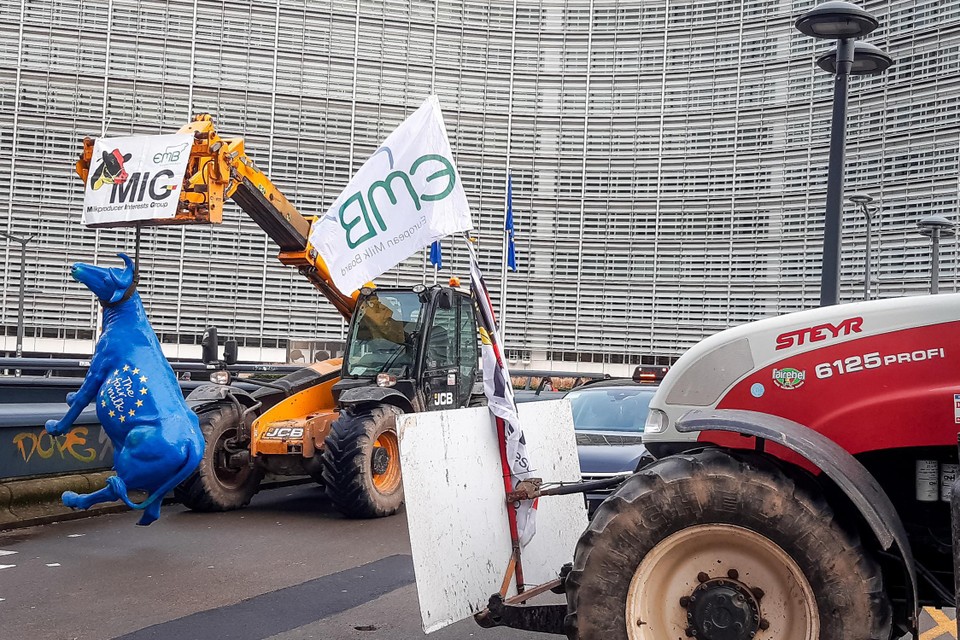In the media What's going on with European farmers?
This editorial by Joris Relaes, Administrator General of ILVO, appeared in De Standaard on 26 January 2024.
OPINION ABOUT AGRICULTURE
What's going on with European farmers?

Farmers protesting in Brussels: always a cozy get-together. — © Jan Nagels/belga
Farmers take risks no one else is willing to take, writes Joris Relaes. They therefore deserve more support.
From Germany to France, from Poland to Spain, in the Netherlands and in Flanders: there are protests and demonstrations by farmers everywhere. Sometimes the cause seems trivial, such as the reduction of fuel subsidies in Germany. Sometimes it is about more structural issues such as the near-stoppage of new permits under the nitrogen policy in Flanders and the Netherlands.
It is a capital-intensive industry. Just buy one hectare of farmland in densely populated Flanders or the Netherlands. Even the machinery and stables adapted to today's sustainability and quality requirements cost handsomely.
Add to that the fact that farms are micro-enterprises in the food chain where large processing and distribution companies rule. Farmers have insufficient market power to set prices themselves and, for example, to pass on the extra investments in the environment, climate or animal welfare in their prices.
Chicken from Kiev
Today, European farmers operate in a globalized free market in which they must contend with imports of products that do not always meet the same quality or sustainability requirements. Think of the eggs and chicken meat we import from Ukraine.
Precisely because agriculture is so risky, other players in the food chain do not take over that link. For example, we don't see our large vegetable and potato processors taking control of production themselves. "Agricultural production is too capital intensive and too risky to venture into it ourselves," says one of the CEOs.Farmers, fortunately, do take those risks. Often out of passion rather than rationality. In the past, governments and the population were more aware of the risks involved in farming, and there was a broad consensus that there had to be something in return in policy terms to provide people with enough food.
This explains Europe's strong intervention in agriculture, when sufficient food was still an issue.
Overabundance of food
That realization is slowly fading away, due to the food glut that is being taken for granted. European agricultural income subsidies are being nibbled away at year after year.
If a number of national subsidies are also fiddled with, as is the case in Germany, or if legal certainty is put under pressure by new environmental and climate measures in France, Flanders and the Netherlands, then the farmer will feel cornered and will be out on the street.How do we solve that? Either we count on consumers to dig deeper into their pockets, which is not an evident solution from a social point of view.
Or we count on the taxpayer to be smart and pay out correct additional compensation to farmers who want to continue producing sustainable, quality food.
We cannot get out of it. We will have to dare to make that choice again and face the consequences.
I hope that the strategic exercise launched this week by Commission President Ursula von der Leyen can be a first step towards that. Especially in the current geopolitical situation, the farmer once again deserves more of our attention.
Joris Relaes
ILVO Administrator-General